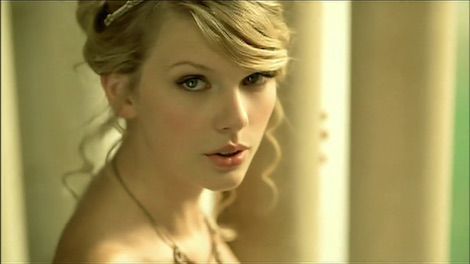
Grading Taylor Swift’s Literary Allusions
Stacy Pratt is a citizen of the Mvskoke (Creek) Nation who wanders around the world when she can. She is a former English professor and current freelance writer specializing in Indigenous arts and literature. Contrary to expectation, her favorite books are about rich people drinking tea and deciding who to marry.
Twitter Handle: @drsepratt
Let me begin by saying that I love Taylor Swift, and nothing is going to persuade me to stop, ever. I’m a Mvskoke (Creek) woman, way older than her, with a life that looks nothing like hers. But I own all her albums and sing every song with wild abandon as I drive down the highway to my very important responsibilities (like sitting in a library on an Army post writing about Taylor Swift).
But I’m also a former English professor, so I feel that it’s my duty to grade her literary allusions, most of which are from books usually found on a high school reading list—which makes sense because she wrote some of these songs when she was still that age. So here are my grades and comments…but just know that if you disparage her, I will defend her as if she is one of my real students, because her overall grade in my book is a great big “A,” and not the kind that Hester Prynne wore.
Romeo and Juliet by William Shakespeare in “Love Story”: C
Starts out well: Romeo and Juliet were, in fact, both young when they first saw each other, and a balcony was involved, as were parents (and in Shakepeare’s version, friends and cousins, too) saying “Stay away from Juliet.” But Romeo and Juliet aren’t a prince and princess. They’re just from rich, powerful families. And as we all know, Romeo never had a chance to kneel on the ground and hold out a ring, much less convince Juliet’s father that he was a good guy, which is what happens at the end of this song. However, after a lifetime of agonizing over Romeo and Julie’s very preventable deaths in the play, I get teary-eyed every time they get together at the end of this song, so I’m giving it a passing grade.
The Scarlet Letter by Nathaniel Hawthorne in “Love Story”: F
Taylor, you need to see me after class because you obviously didn’t understand The Scarlet Letter at all. Even though “the scarlet letter” has come to mean anything that marks a person as shameful, it still doesn’t quite work here. Unless the narrator of this song has a husband she thinks was lost at sea. And a baby whose father she won’t reveal. And a town of people who like to place her on a scaffold to judge her periodically. And…it’s just not going to work.
The legend of Achilles in “State of Grace”: B
Not the most famous song on this album, and not the most original use of “Achilles heel,” though it’s not technically incorrect. I’m not going to dock too many points for mixing the Christian idea of “state of grace” with the legend of the pre-Christian Greek demigod, but just know that not everyone appreciates syncretism. Also, “Achilles heel” is such a common Greek mythology reference that it’s basically a cliché. I really feel like you can do better.
Alice in Wonderland by Lewis Carroll in “Wonderland”: B+
This is a way better reference to Wonderland than the one your unspeakable ex used, and I’m sorry I’m even mentioning him here. Anyway, extra points for correctly referencing the rabbit hole and understanding that Wonderland is both “never worse but never better” and that “it’s all fun and games until somebody loses their mind” there. The only thing keeping you from the A is that the Cheshire Cat’s grin didn’t calm Alice. She thought it was creepy.
The Scarlet Letter by Nathaniel Hawthorne in “New Romantics”: A
Much better, Taylor! Hawthorne can be unwieldy, but all your studying has paid off. In this song, your reference to all the decadent young people comparing their “scarlet letters” makes sense, as they are presumably people who have been made outcasts or outsiders due to what other people see as their excessive romantic passion. Brava!
A Tale of Two Cities by Charles Dickens in “Getaway Car”: A
In a song that so satisfyingly twists so many clichés, this Dickens reference works nicely—especially since the novel is definitely about “the best of times, the worst of crimes” as well.
The Great Gatsby by F. Scott Fitzgerald in “This Is Why We Can’t Have Nice Things”: A+
Big parties? Jumping in pools from balconies? Champagne sea? A chandelier? Yes, that year does sound very much like it occurred at Jay Gatsby’s mansion. And I guess Nick Carraway also learned why people can’t have nice things too, now that you mention it.


